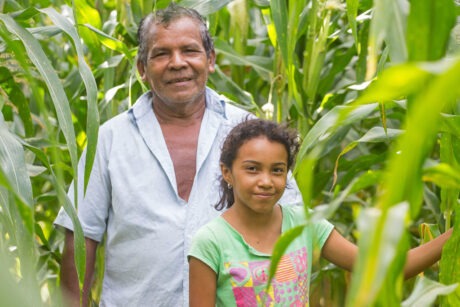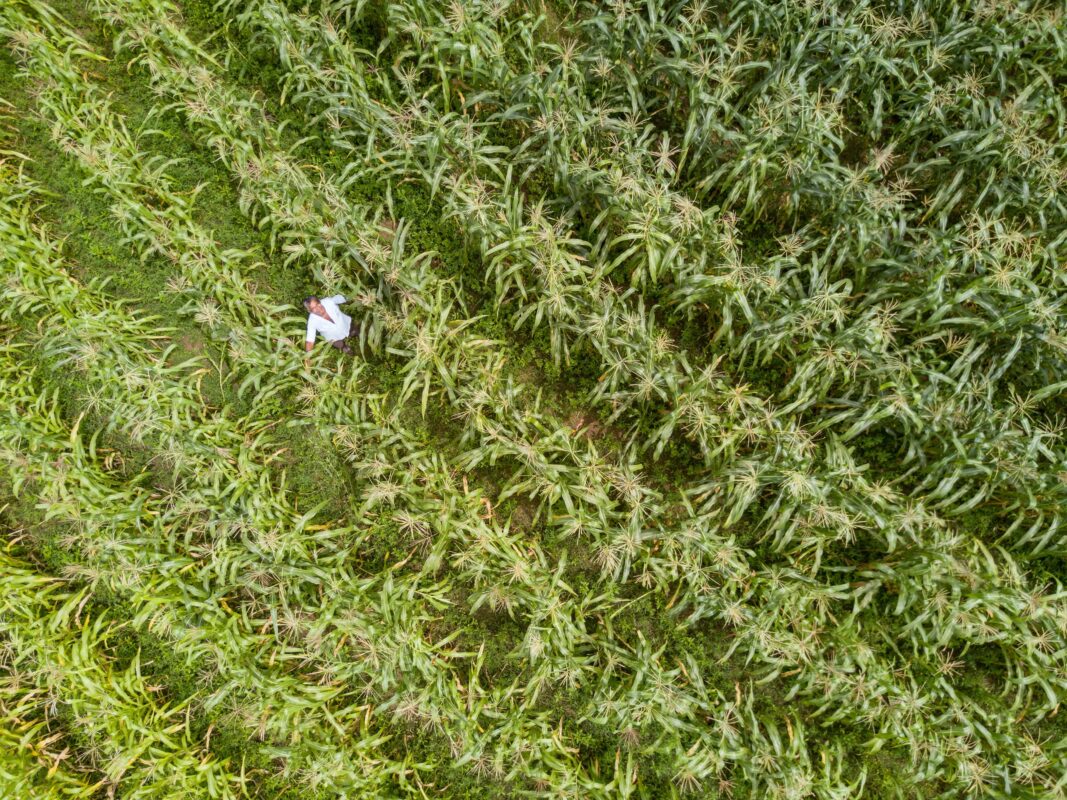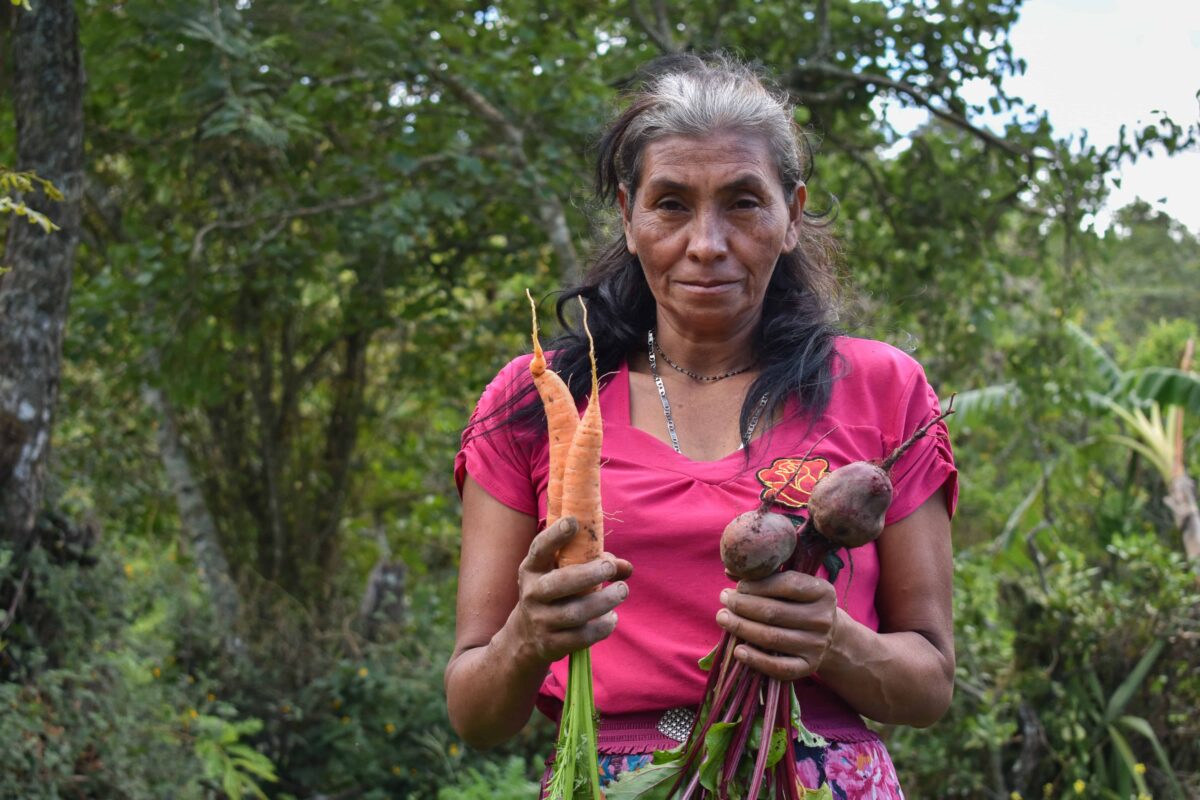Choluteca, HondurasFor Dayra Escalante and Olman Aplícano, the drive to the remote community of El Llano isn’t easy. They ride motorbikes more than an hour outside the city of Choluteca over a pothole-ridden highway and narrow, rocky roads.
Arriving in baseball caps and blue jeans, they park their bikes and walk to the shade of a sprawling tree to address a small crowd of women who have gathered with their young children.
The pair are in this patch of Honduras’ Dry Corridor region to assist in measuring the children’s height and weight and to help educate the families on keeping their kids healthy.
“We know that the weighing happens monthly. And how often do we measure height, does anyone remember?” Aplícano asks the semi-circle of women seated on plastic chairs and wooden benches.
A handful of mothers call out the answer: “Every four months.”
After explaining the process, Aplícano and Escalante lend a hand recording data as each woman brings her child first to a scale hanging from the tree and then to a height measuring board resting on a small table.
Aplícano and Escalante are “promoters” working with a project called Dry Corridor Alliance (ACS) – PROSASUR. The project is funded by the World Bank through the Global Agriculture and Food Security Program and is implemented by Creative Associates International in partnership with INVEST-Honduras.
ACS-PROSASUR aims to reduce chronic childhood malnutrition, which is prevalent in the Dry Corridor due in part to food and water insecurity, poverty and lack of access to medical care.
The project provides food security planning, health education and support for household works to improve sanitation and hygiene.
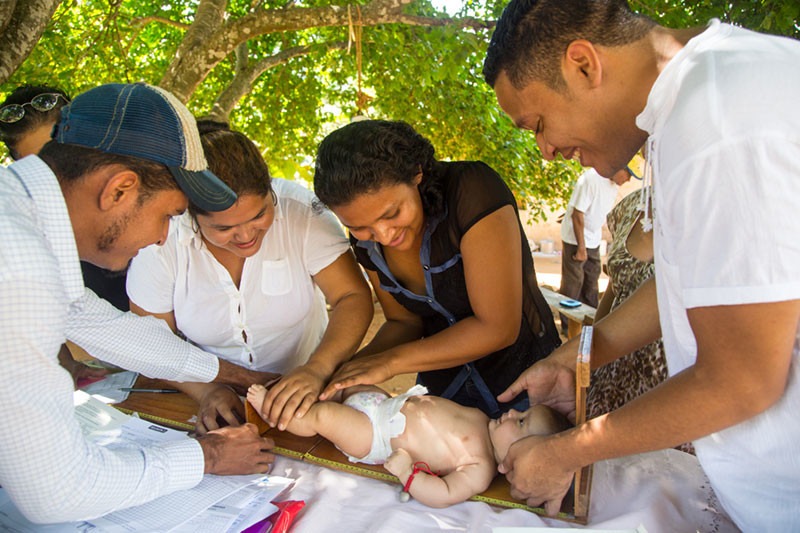
As promoters, Aplícano and Escalante’s job is to keep the communities informed and engaged with the project and oversee interventions, such as the height and weight monitoring, which is followed by counseling for parents whose children are not reaching their expected measurements based on age. They collect valuable data on not only children’s growth, but also household conditions, poverty and the needs of a community.
Escalante says that after they begin building local awareness and trust – which includes identifying leaders and convening a public meeting – the project is able to make inroads into even isolated communities that can be wary of outsiders.
“Once we’re there, once we do the community assembly, the families always have their doors open to receive us. Sometimes we don’t even need to plan visits, we just arrive impromptu to see how they are,” she says. “We always refresh their minds on what the project is and always socialize what the project expects from them and what we’re going to provide in terms of basic sanitation.”
Promoters like Escalante and Aplícano are vital in ACS-PROSASUR’s efforts to reduce childhood malnutrition, diversify diets and improve health for poor and extreme poor families.
Dr. Ninoska Bulnes, Director of the project’s health and hygiene component, says she depends on the promoters to work at the local level to get to know families personally and be a connection between remote areas and the office in Choluteca.
“These community agents are like the social fabric that works around the community. It’s a human platform and promoters really promote behavioral change, they motivate the households,” she says. “For us, it’s fundamental.”
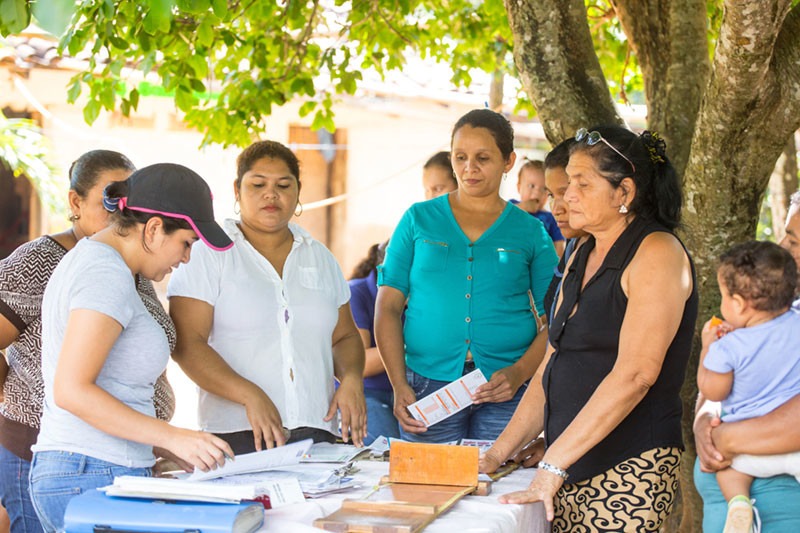
Community leaders step up
While Aplícano and Escalante are constantly on the road traveling to different municipalities, they have some built-in support in each. The promoters rely on leaders who live in the communities to help with activities and continuously spread the word about nutrition and hygiene.
In El Llano, Isabel Betancourt talks with mothers and helps them seat their children in the hanging scale, reading their weight aloud for others to write down. Isabel was elected as one of five “monitors” by her neighbors at a community assembly.
Monitors preside over the monthly measuring of children in the community and help ensure that families attend the sessions in order to accurately track children’s growth. Often the monitors themselves will benefit from the project, whether through nutrition counseling or household improvements.
Betancourt says that preparing for the monthly reunions and convening the families on the sixth of every month is a lot of work, but it’s worth it to see mothers better understanding what their children need to stay healthy.
“It’s a big responsibility, but I want to see the development of my community and of the children,” Betancourt says. “That’s why I felt committed when they elected me in the first meeting that we had. I accepted because I’ve always liked to work for the community.”
Aplícano explains that the collaboration between the promoters on the project side and the monitors within the communities together ensure that mothers can better understand how their children are growing and make changes at home if necessary.
“The mothers never realized how their children were growing, so we did visits with them. I have visited mothers alongside the monitors to check up on the families and give some advice about improving the health and hygiene conditions for a child,” he says. “For example, in cases of diarrhea, how do we treat it? Chlorinating, boiling the water, washing the child’s hands each time he eats and always keeping the house clean.”
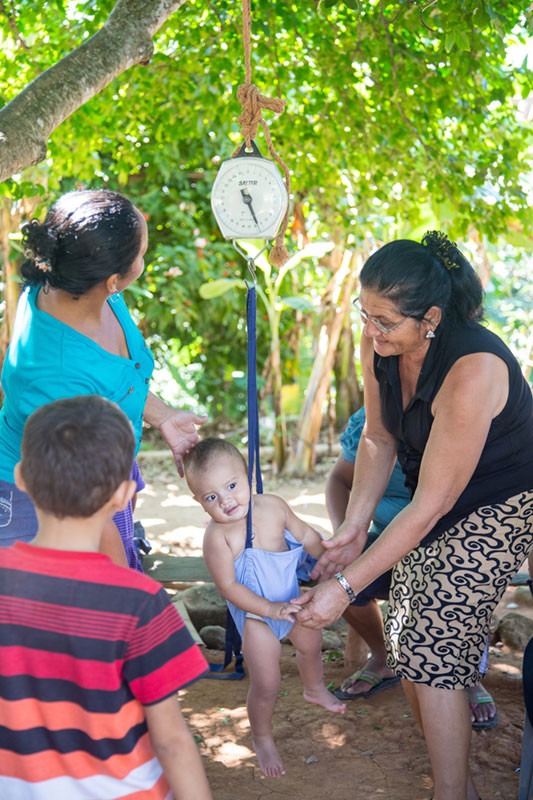
Youth serve their neighbors
While respected community-based leaders like Betancourt are a major asset to their communities and ACS-PROSASUR, the project is also focused on engaging the next generation.
Jairo Carranza, 17, is bouncing a baby on his lap, chatting with some of the women. He lives right next door to the meeting point for weighing and measuring, and is the only man present aside from project staff.
Carranza and Cynthia Suyapa Cruz, 22, were nominated by the community to be youth volunteers and will assist with promoting good sanitation and hygiene.
Both say that they hope to give back to their community and help nearby families improve the conditions in their homes.
“That’s why they elected us as youth volunteers, because we’ll be at the service of the community and we are from the community,” Suyapa says. “To benefit the community, to help them. Not only with weight but with hygiene, so that there aren’t as many illnesses and the children live well.”
Across the municipalities, ACS-PROSASUR will help families make improvements to their households, focusing primarily on replacing dirt floors with concrete, installing or improving latrines, upgrading wood-burning and inefficient stoves and putting water filters in place. Other undertakings may include fixing roofs and setting up water harvesting systems.
Without these changes, families and particularly young children are more susceptible to sickness – from unfiltered water, bacteria and smoke inhalation. Diarrhea and pneumonia are common problems that can hinder a child’s growth.
“What we’re looking to do is help the community, so they have better protection with hygiene,” Carranza says. “We want to see changes in the homes, even in our own. If someone doesn’t have water in the latrine, you have to help. Same if someone doesn’t have a floor. That’s what we’re looking for, to work as a team.”
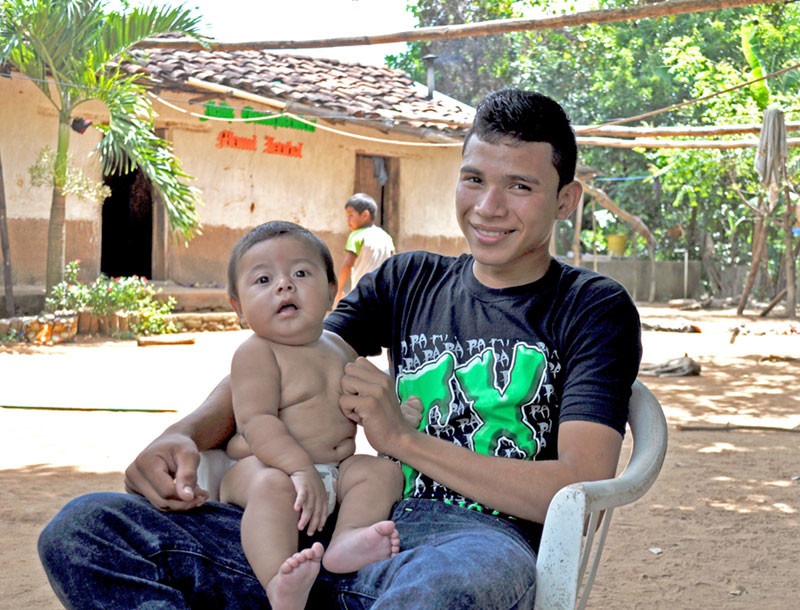
Carranza, Suyapa and other youth across the Dry Corridor project will receive trainings on sanitation and hygiene and become a resource for their communities. Working alongside the community monitors and with support from the project promoters, these volunteers will be an important asset to their neighbors.
Promoter Escalante says that this web of volunteers is crucial to keep educating and guiding families. For example, she says, the project can install a new cook stove, but still needs to be present to coach people on how to properly use it.
“I’m a promoter in two municipalities. I can’t give myself to all of the homes in all of the communities. We’re organizing this group of youth so that once the technologies are implemented, with supervision and checking in from us and the volunteers, we keep educating the home,” Escalante says. “Making that change in the culture of the family, from the youngest up to the oldest.”
Bulnes, the project’s health and hygiene lead, says that empowering young volunteers with the ability and knowledge to help improve their communities will ensure that the situation continues to improve even after the end of the five-year project.
“We leave a capacity installed in the community through this web of volunteers,” she says. “They truly work voluntarily and for a love of their community. Often, they leave their own homes to dedicate themselves to the protection of others, to guide the mothers, invite them to participate, motivate them. It’s their leadership.”
With reporting by Jillian Slutzker and Amalia San Martín in Choluteca, Honduras.
